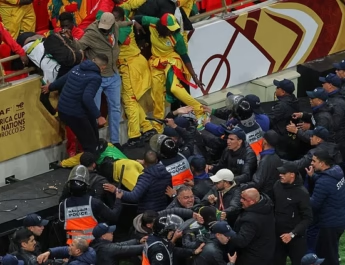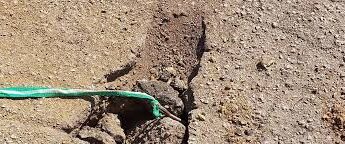Leaders of Benue communities in the diaspora have condemned the recent wave of killings across the state, describing the violence as a “silent genocide” against indigenous populations.
Their reaction follows the June 14 massacre in Yelewata, Guma Local Government Area, where over 200 people were reportedly killed by suspected armed herders. In an open letter jointly signed by Professor Akaa D. Ayangeakaa, representing the Tiv diaspora, and Chief Edwin Ochai, representing the Idoma diaspora, the leaders chronicled similar attacks in Ukum, Apa, Otukpo, and other parts of the state. They urged President Bola Tinubu to take immediate and decisive action.
The letter also strongly criticized remarks made by the President’s Special Adviser on Information and Strategy, Mr. Bayo Onanuga, who described the killings as “reprisals” in a “farmer-herder conflict.” The diaspora leaders called this framing dangerous and misleading, insisting the violence is a coordinated campaign of ethnic cleansing.
They accused the Federal Government of maintaining silence in the face of ongoing atrocities and failing to provide adequate security or relief for affected communities. The letter demanded an urgent federal response, including the deployment of security forces, prosecution of perpetrators, and the resettlement of displaced persons.
The full letter reads in part:
“Over the past few months, towns and villages across Benue State have suffered relentless, planned, and brutal attacks. In Gbagir (Ukum LGA) in May, over seventy civilians were killed. Then, on June 14, Yelewata (Guma LGA) witnessed another massacre—over 200 people murdered in cold blood. These were not casualties of conflict or crossfire. They were executions. Families wiped out. Homes reduced to ashes. Survivors traumatized for life.
“The violence is widespread. Otukpo, Apa, and many other LGAs have seen similar tragedies. In early 2024, coordinated attacks left hundreds dead, entire communities displaced, and villages destroyed. From Agatu to Tarka, Kwande to Buruku, Benue is under siege. And yet, we see no meaningful federal response. No presidential visits. No arrests. No justice.
“Your Excellency, this is not about communal clashes or farmer-herder disputes. These are coordinated, targeted attacks on indigenous Benue people. Humanitarian agencies estimate over two million internally displaced persons (IDPs) now reside in overcrowded camps across the state—families who once lived in peace, now stripped of homes, farms, and hope.”
The letter expressed outrage at Mr. Onanuga’s June 15 statement and rejected it as not only inaccurate but also insulting.
“To frame the Benue massacres as ‘reprisal attacks’ in a ‘farmer-herder conflict’ is deeply offensive. Was the seven-month-old baby hacked with a hatchet and burned alive a farmer? Were the infants who died clinging to their mothers also participants in this so-called conflict? These are not reprisal killings. This is terrorism. This is ethnic cleansing.
“Reconciliation meetings between ‘warring parties,’ as proposed by the presidency, are fundamentally flawed. The people of Benue are not at war. They are victims of unprovoked, systematic attacks. How do we reconcile with faceless attackers who strike without warning and vanish, leaving only grief and devastation?”
The leaders warned that continued government inaction could destabilize the region and erode public trust.
“Justice must precede reconciliation. Not a single perpetrator has been arrested or prosecuted. To call for peace without justice is to normalize impunity and abandon the rule of law. Benue, known as Nigeria’s food basket, is vital to national food security. Destabilizing it has broader consequences than many realize.
“The people of Benue overwhelmingly supported your candidacy in 2023 because we believed in your message of renewed hope. That hope is now hanging by a thread.”
The letter then presented a set of urgent demands:
The Diaspora Leaders Called on President Tinubu to:
- Publicly acknowledge and condemn the massacres in Gbagir, Yelewata, Otukpo, Apa, Logo, Kwande, and other affected communities as acts of terror, ethnic cleansing, and crimes against humanity.
- Deploy federal security forces in a coordinated, sustained, and responsible manner across at-risk areas.
- Launch a full, independent investigation into alleged security failures or complicity during the Yelewata and similar attacks, ensuring legal consequences for any wrongdoing.
- Initiate a comprehensive federal resettlement and rehabilitation program for displaced communities, including rebuilding homes, schools, farms, clinics, and other vital infrastructure.
- Announce and implement a plan to recover illegally occupied ancestral lands and ensure the safe return of displaced persons.
- Facilitate ongoing dialogue between the Federal Government and Benue stakeholders—not with “warring parties,” but with those advocating for justice and systemic solutions.
“True leadership is measured by how a nation’s leader responds to the cries of the people. Benue is not asking for favors; we are demanding the right to life, dignity, and security.
“We appreciate your decision to cancel your Kaduna visit and instead come to Benue on June 18, 2025. But the truth remains—had this level of massacre occurred in Sokoto, Kano, or Maiduguri, the federal response would have been immediate. In contrast, Benue has received silence, and now, harmful misrepresentation.
“Are Benue lives worthless? This moment will test the conscience of your administration. The Nigerian people, and history, are watching. Let this be remembered not as a time when a president looked away—but as the moment when justice and decisive leadership prevailed.”




